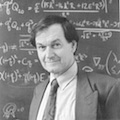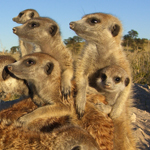Below are a section of talks previously held by the Stokes Society.

Ebola: Ape Man Hunts Bat Virus
You’ve probably heard a lot about Ebola virus. What you probably haven’t heard is that Ebola has killed about one third of the world gorilla population or that the current human outbreaks might have been prevented by tracking a spreading wave of Ebola infection in fruit bats. Come hear about these topics and also my research testing experimental Ebola vaccines for use on wild gorillas and chimpanzees: the same vaccines that could control the raging human outbreak in West Africa. Oh, yes, I will also explain why you are not going to die from Ebola…

Cosmology: Before the Beginning and Beyond Eternity
A recent theory, conformal cyclic cosmology (CCC), proposes that what we presently regard as the entire history of our universe is merely one phase (an “aeon”) of an infinite succession of similar aeons. The ultimate expansion of each aeon, according to the theory, appears as the big bang of the next. Collisions between supermassive black holes in the aeon prior to ours would have left an observable imprint on our cosmic microwave background — imprints which have apparently already been detected by WMAP and Planck space satellites. Recent claims that south-pole telescope observations provide the “smoking gun” of an inflationary beginning to our universe’s expansion are disputed, as CCC provides an alternative explanation with intriguing consequences…

Resistance is Futile: the Story of Superconductors
Dr Noel Rutter makes a train levitate above the track, collides hadrons in a particle accelerator, images soft tissues in the body and transmits electrical power through wires without wasting any: all he needs is is a superconductor. How do materials exhibit this strange property? Just how hot can “high temperature superconductors” be? And why aren’t we all travelling around in these levitating trains yet? Live demonstration with liquid Nitrogen!

Culture and Community: the Flow of Information in Meerkat Societies
Human behaviour is largely moulded and refined in society. People learn from one another, and the resulting spread of social information plays a major role in shaping the behaviour of individuals and groups. To what extent is this true of other species? In this talk, Dr Alex Thornton considers the role of social information in meerkat societies, shows that information acquired from their elders plays a critical role in allowing pups to develop critical life skills and discusses how the spread of information can lead to local traditions in different meerkat groups. He also shows a lot of very cute pictures.
